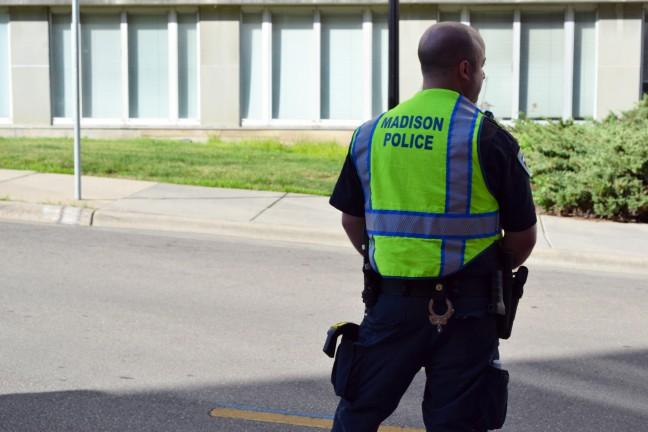The Madison city council addressed the issue of police body cameras again Tuesday. The City of Madison has considered the implementation of body cameras in several committees for the past seven years.
Camera supporters have advocated for a measure that would spend $83,000 of this year’s capital budget on 48 cameras for a pilot program in Madison’s North Police District, according to Government Technology.
In an era of heightened attention on police reform, body cameras are especially central in the conversation to illuminate direct evidence of what happens in police encounters, according to Government Technology.
District 2 Alderperson Patrick Heck said a group of alders presented the pilot program Tuesday which would implement body cameras. Heck said they did not include any referrals with their proposal.
Heck said without a referral, proposals are simply presented and then voted on at the next council meeting. But Heck felt it was necessary to refer the pilot program proposal to the Public Safety Committee review that will happen in January 2022.
The Tuesday council meeting mostly debated the referral to the Public Safety Committee, not the proposal itself. Heck felt the council was generally very supportive of the referral in order to ensure the proposal was thoroughly reviewed. He feels the council will be evenly split with regards to body cameras themselves.
District 18 Alderperson Charles Myadze said he highly supports body cameras.
“My strong view is that Body Worn Cameras are a common-sense, widely used tool that Madison has studied extensively, earmarked funds to support on a pilot basis, and which have drawn support from individuals,” Myadze said in an email statement to The Badger Herald.
Myadze said body-worn cameras promote transparency, trust and training that should be part of efforts to improve policing in addition to the other police reforms Madison is making.
Though body cameras can be good, Heck said he does not feel the current proposal of the pilot program is thorough enough.
“Body-worn cameras can do good, but they can also be bad. They are highly a function of … all the technologies related to how police use them. It’s highly complex,” Heck said.
Heck pointed to a report done by the Body-Worn Camera Feasibility Committee that was adopted in July of 2021. This report detailed the necessary conditions for any pilot program regarding body-worn cameras to succeed. He pointed out that the current proposal does not consider this report and does not address what the council is going to do with the pilot.
Heck said the report is incomplete and does not include the funding necessary to implement this pilot program.
“It’s not at all a slam dunk that body-worn cameras are going to be helpful,” Heck said.
Heck said there is no guarantee this particular reform will work, and they need to ensure they are using an effective pilot program.


